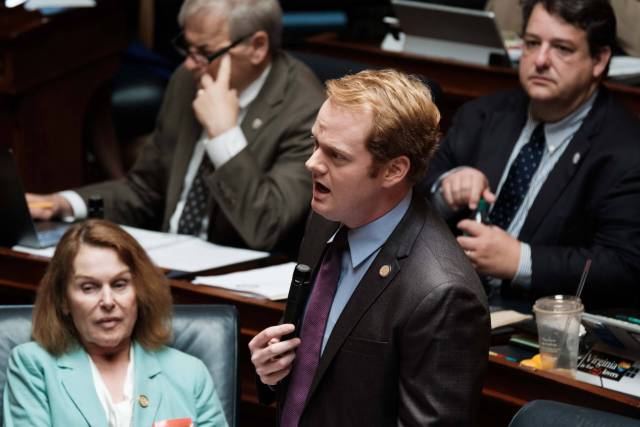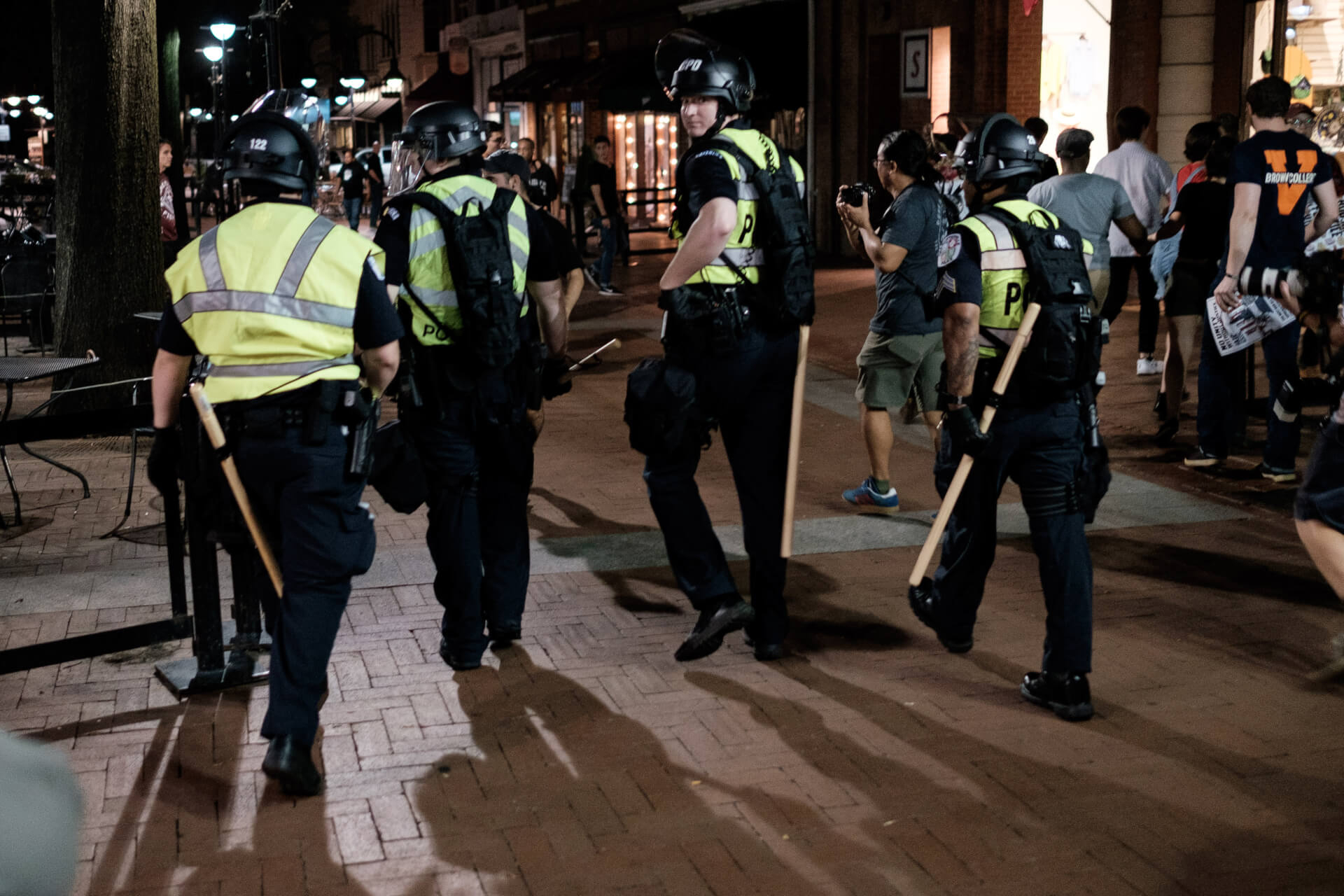(VM) – Police in Virginia almost never release case files and body camera footage, even long after their investigations have concluded.
A bill aimed at changing that failed during the special legislative session, which concluded last week. But lawmakers are already working to revise the legislation in response to concerns raised by police about graphic crime scene photos and victim privacy.
“This is really about trying to achieve justice,” said Del. Chris Hurst, D-Montgomery, telling members of the Virginia Freedom of Information Council on Wednesday that current law allowing police to indefinitely withhold records hampers news reporting, leaves crime victims in the dark and limits efforts to investigate and overturn wrongful convictions.
In most states and at the federal level, such records are open and accessible to the public with a handful of exceptions, according to the Innocence Project, which works to overturn wrongful convictions and argues access to a defendant’s full case files is essential to that work. Another 14 states presume those records aren’t public.
And four, including Virginia, leave the decision to disclose records to the individual law enforcement agencies that possess them.
The broad exemption, which police can apply to most records in their possession, gives local and state departments the ability to shield all but the most basic information about how they respond to and investigate crimes from public disclosure. And as body cameras have proliferated, it’s also been routinely used to block the release of the footage they generate, including in cases where they’re not part of an ongoing investigation and never were.
During the special legislative session, which was largely devoted to issues of police reform, Hurst argued that increasing transparency would improve trust in police departments and give recourse to people who believe they’re the victims of police misconduct.
As an example, he invoked the case of Kionte Spencer, who a Roanoke County police officer fatally shot in 2016 and whose family still hasn’t been allowed to see the full dash cam video capturing the encounter — something members of the community continue to demand.
“The reason why we need to be able to have these records disclosed to the public or to families or interested parties is because often times these are people who aren’t able to get any answers, much less justice for a crime that has been committed against a loved one,” Hurst told lawmakers in August as the bill made its way through the General Assembly.
The Innocence Project offered a similar argument, writing to lawmakers that that, in addition to aiding their investigations into wrongful convictions, the bill would ensure fair investigations into police killings.
“There is no way of knowing whether police are adequately investigating their own because agencies can withhold their findings from the public,” wrote Michelle Feldman, the group’s director of state campaigns. “Transparency will allow for external oversight and enhance justice for victims who were killed or brutalized by officers.”
Opposition to the legislation from police and some Republican lawmakers centered around victim privacy, the potential release of crime scene images and the possibility that ongoing investigations would be jeopardized.

Hurst’s bill aimed to address those concerns by including exceptions that allowed departments to withhold cold cases for up to three years after the incident that began the investigation. And after three years, if police still believed a record’s release would harm their investigation, they would be allowed to ask a judge for permission to continue to withhold it.
And to protect victim privacy, the bill would allow police to withhold photographs, video and audio that depicted or identified the victim of a crime unless the request came from the victim themselves or, if the victim is deceased, an immediate family member.
But law enforcement representatives said the proposed law still went too far. During an August hearing, representatives of the Virginia State Police warned lawmakers in August that the bill would almost certainly lead to the release of case files related to 2007 mass shooting at Virginia Tech and the D.C. sniper attacks in 2002.
“The disclosure will include items such as crime scene photos, which have been the subject of requests and have been denied year after year since the tragic events,” said the agency’s FOIA director, David Ostwinkle. “The department is concerned that the victims and their loved ones will be revictimized by the disclosure despite available redactions.”
Ostwinkle also warned that the department had nearly 1,300 cases that it considered open that would meet the legislation’s definition of a cold case because it was three or more years old without any charges filed.
Open government advocates argued that framing the bill in the context of high-profile crimes misrepresents how it would be used in the vast majority of cases. “This does often get put in these very high stakes terms of shootings and murders and rapes,” said Megan Rhyne, the director of the Virginia Coalition for Open Government. “There can’t just be this broad bush shutdown of access to all investigative files when really it’s just a small fraction that folks have an understandable right to be concerned about.”
Family members of two people killed in the mass shooting in Virginia Beach last year, who are also supporters of the bill, argued that law enforcement groups were not representing their interests when they warned of the impact on crime victims. “We are the victims, and we’re telling you that we want public access to investigative records. The outcomes of police investigations should be made public for the truth to come out and for victims to feel confidence in the process,” wrote Jason Nixon, who lost his wife in the shooting, and Debbie Borato, who lost her sister.
Ultimately, the legislation passed the House of Delegates but died in the Senate, where members of the Courts of Justice Committee asked the FOIA Council to study the measure.
That work began Wednesday, when Hurst presented the council with a revised bill based on how federal law addresses access to investigative files, which is slightly more open-ended in the exemptions that it grants to law enforcement but still provides a presumption that requested records should be disclosed.
Members of the council subcommittee tasked with reviewing the proposal are still working on the legislation and haven’t yet made any decisions, but sounded open to the new approach, which Hurst said he hoped would assuage law enforcement concerns.
“I think the federal language may be able to comfort those who may have additional questions,” he said.



